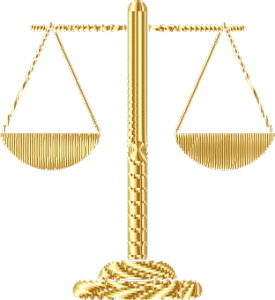The Use of Custom and Usage in Interpreting Commercial Contracts Under New Jersey Business Law
Enforceable contracts are the bedrock of a strong economy. If contracts were not enforced, parties could not rely on the other side performing because there would be no remedy if they breached. Therefore, commerce would break down. Enforceable contracts are so important to the economy, in fact, that the freedom to contract is included in both the New Jersey and United States Constitutions. Before a contract can be enforced, however, the parties and the reviewing court must figure out what the contract means. When the terms are clear this normally isn’t a problem. However, when the contract is ambiguous, or even just a part of it is unclear, the question becomes what evidence may be admitted to determine the meaning and intent of the contract.
As I’ve written earlier, New Jersey courts generally adhere to the “parole evidence rule,” which holds that when there is a clear, unambiguous contract, extrinsic, or external, evidence beyond the four walls of the contract is inadmissible to prove what the contract means. However, in New Jersey business law, the exceptions come close to swallowing the rule. Indeed, the New Jersey Supreme Court held as far back as 1953, in the case of Atlantic Northern Airlines v. Schwimmer, that all evidence is relevant if it will assist the trier of fact in determination what the parties to a contract intended and what the contract means – even if that evidence is extrinsic.
The question, then, is what sort of extrinsic evidence is admissible? In the case of commercial contracts, one source of evidence is custom and usage.
 New Jersey Lawyers Blog
New Jersey Lawyers Blog


 actors and building suppliers in the prosecution and defense of construction lien claims.
actors and building suppliers in the prosecution and defense of construction lien claims. New Jersey Courts have followed the Parole Evidence Rule since at least 1882. The Parole Evidence Rule holds that outside (or “extrinsic”) evidence is not allowed to alter the terms of a contract – in other words, the Parole Evidence holds that, the meaning of a contract is contained within its own four walls. Unlike most rules with the word “evidence” in it, the Parole Evidence Rule is not actually part of the
New Jersey Courts have followed the Parole Evidence Rule since at least 1882. The Parole Evidence Rule holds that outside (or “extrinsic”) evidence is not allowed to alter the terms of a contract – in other words, the Parole Evidence holds that, the meaning of a contract is contained within its own four walls. Unlike most rules with the word “evidence” in it, the Parole Evidence Rule is not actually part of the  Our attorneys represent people and businesses in all aspects of contract law, including contract negotiations, drafting, review and contract litigation. One of the more complex areas of contract law if the interplay of contract and tort law when fraud and contracts intersect. While this issue is complex, there are several basic rules and principles.
Our attorneys represent people and businesses in all aspects of contract law, including contract negotiations, drafting, review and contract litigation. One of the more complex areas of contract law if the interplay of contract and tort law when fraud and contracts intersect. While this issue is complex, there are several basic rules and principles. What is a Restrictive Covenant?
What is a Restrictive Covenant? When you purchase a liquor license in New Jersey, as a Buyer you must be approved by the State of New Jersey Alcoholic Beverage Commission and the Municipality where the business operates. This process is detailed and time consuming. it must be started as soon as possible by the Buyer. You will need to obtain a Person to Person Transfer of the liquor license. Unless and until the municipality issues a resolution approving of the transfer of the liquor license, the current license holder must operate the business.
When you purchase a liquor license in New Jersey, as a Buyer you must be approved by the State of New Jersey Alcoholic Beverage Commission and the Municipality where the business operates. This process is detailed and time consuming. it must be started as soon as possible by the Buyer. You will need to obtain a Person to Person Transfer of the liquor license. Unless and until the municipality issues a resolution approving of the transfer of the liquor license, the current license holder must operate the business. The New Jersey Supreme Court recently issued an important decision in the case of
The New Jersey Supreme Court recently issued an important decision in the case of 
 There is a large and complex body of laws which restrict and regulate the of waste transportation businesses in New Jersey. Indeed, New Jersey has arguably the most stringent requirements and restrictions on the solid waste industry in the country.
There is a large and complex body of laws which restrict and regulate the of waste transportation businesses in New Jersey. Indeed, New Jersey has arguably the most stringent requirements and restrictions on the solid waste industry in the country. New Jersey has followed the national trend in creating the “limited liability company,” (known as “LLC”), as an allowable form of business entity under New Jersey business law. The LLC combines the best elements of both a corporation and a partnership.
New Jersey has followed the national trend in creating the “limited liability company,” (known as “LLC”), as an allowable form of business entity under New Jersey business law. The LLC combines the best elements of both a corporation and a partnership.